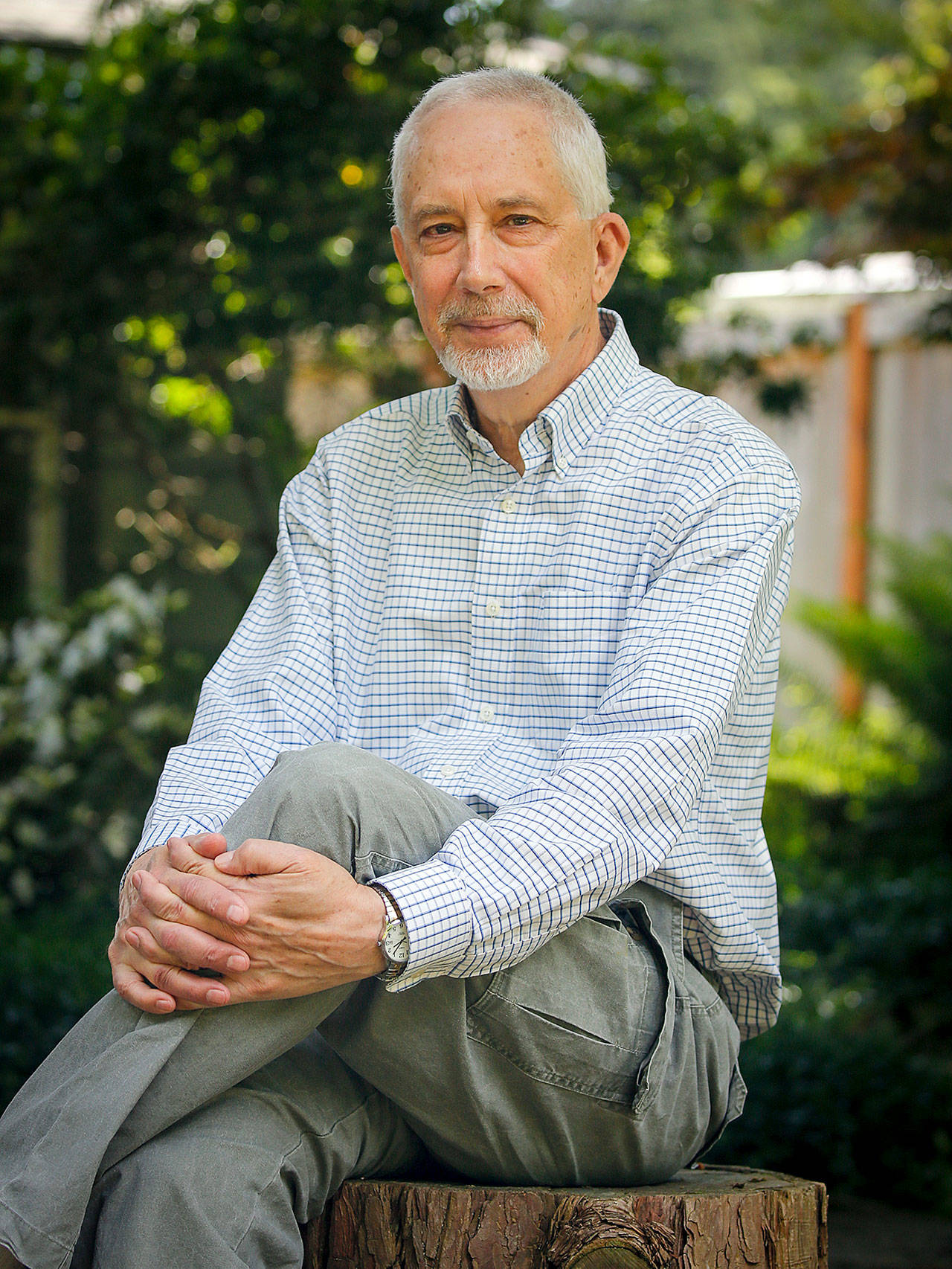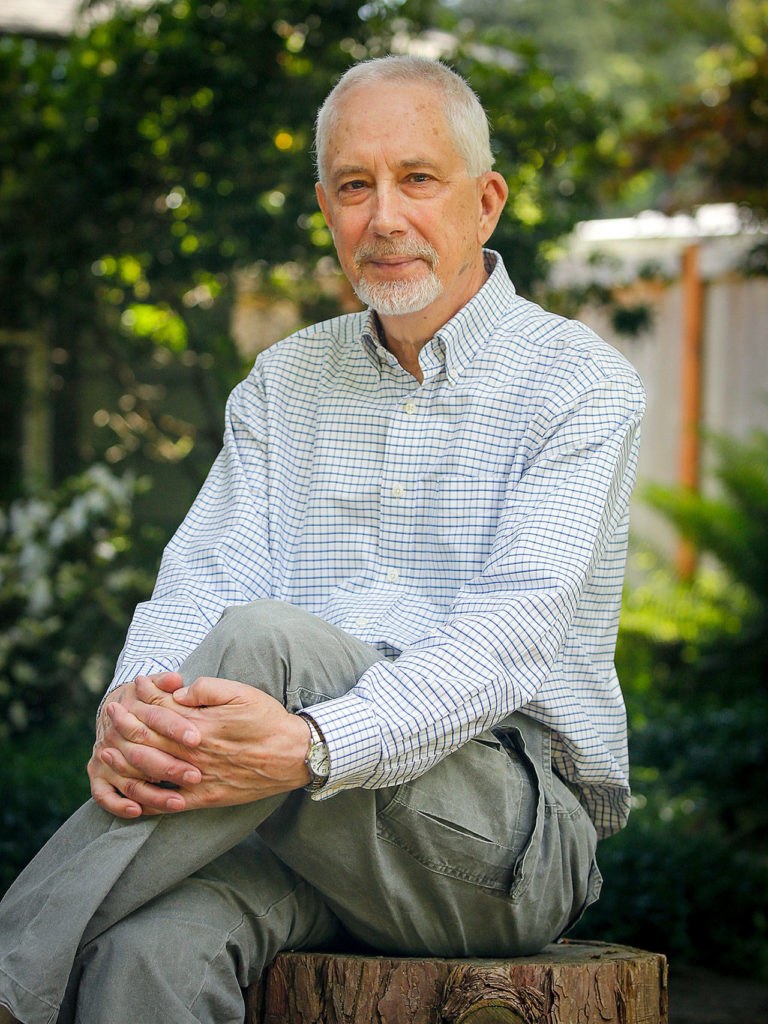Stewart Tolnay couldn’t have guessed, while writing “Less Than Righteous,” that soon after his novel was published the killings of two African American men would draw national attention and spark fiery protests — even in the midst of a global pandemic.
Yet the Everett native and retired University of Washington sociology professor isn’t surprised.
“It happens over and over again,” said Tolnay, reflecting on the deaths of Ahmaud Arbery and George Floyd.
In Georgia, three white men, one a retired law enforcement officer, were charged with murder months after Arbery, a black jogger, was chased and shot to death. Floyd died Monday in Minneapolis, where a bystander’s cellphone video showed a white policeman pressing his knee into the black man’s neck as Floyd repeated, “I can’t breathe.”
Anger in Minneapolis exploded in chaos, while protests have spread to other cities. On Friday, the fired Minneapolis officer was arrested and charged with third-degree murder and second-degree manslaughter.
“Sadly,” said Tolnay, the story told in his first novel “continues to have relevance in 2020.”
“It’s impossible to read the book and not think, ‘Gee, that sounds familiar,’” the author said Wednesday.
The plot of “Less Than Righteous,” much of it set in 1960s Everett, spans the years 1942 to 1969.
“It moves back and forth over time,” Tolnay said. “An interracial relationship is the basis of the plot.”
A 1969 Everett High graduate, Tolnay went to Everett Community College before earning his bachelor’s, master’s and doctoral degrees in sociology at the University of Washington. A former chairman of the UW’s sociology department, he retired in 2017. As a professor emeritus, he holds the S. Frank Miyamoto endowed chair.
Some characters in the book reflect people he knew growing up in Everett. And one, a white friend of the central black character Otis Booker, is named Dylan Terry — roughly based on Tolnay himself.
The story follows the Booker family from Oconee County, Georgia, to Everett. Mose Booker, Otis’ father, moves to the Northwest after serving in Europe during World War II as part of the U.S. Army’s first all-black tank battalion.
His son Otis is also a war veteran, and back in Everett he is haunted by what he experienced as a soldier in Vietnam. While studying at Everett Community College, Otis has a romantic relationship with a white student, Cindy Castle. The daughter of a liberal attorney, she lives among affluent families on Everett’s Rucker Hill.
The Booker clan is a fictional version of a black family Tolnay remembers from his Everett boyhood. He even recalls an incident, when he was 8 or so, of being with a group of boys who threw rocks at that family’s house.
“Growing up in Everett in the ’60s was not diverse at all,” said Tolnay, who recalled from those years some of the racist language used by the book’s white characters.
More than offensive language, the novel contains horrific violence. It includes the graphic description of how one of Otis’s ancestors was lynched in Georgia. Another hanging claims the life of a major character toward the end of the book.
“It’s a very dark story, there are disturbing scenes,” said Tolnay, whose academic work includes a comprehensive accounting of lynchings that for decades plagued the South.
From 1981 to 1988, Tolnay was a faculty member at the University of Georgia. He co-authored two nonfiction works — “Lynched: The Victims of Southern Mob Violence” and “A Festival of Violence: An Analysis of Southern Lynchings, 1882-1930” — chilling records of a hideous hate crime.
“Lynched,” by Amy Kate Bailey and Tolnay, was published in 2015 by the University of North Carolina Press. The Journal of Southern History described it as “the single most important piece of scholarship yet produced on the victims of lynching.”
Today, Tolnay lives in the Innis Arden area of Shoreline. Long before he moved there in 2014, Innis Arden had a restrictive covenant that — like in many upscale neighborhoods — didn’t allow non-whites to live there or own property. William Boeing, the aircraft company founder, subdivided the land north of Seattle in 1940.
The covenant said the only people “not of the White or Caucasian race” allowed to occupy any property there were domestic servants. By the late 1960s, federal and state laws made it illegal to discriminate on the basis of race, but for years the discriminatory bylaw — now gone — remained on a list of restrictions signed by Innis Arden home buyers.
Hate based on race isn’t a remnant of the past. Tolnay sees it not only in white nationalist groups, such as those that carried torches at a 2017 rally in Virginia, but in current efforts at voter suppression and tweets from “the most prominent voice in the country.”
He was struck by the book, “Between the World and Me,” by Ta-Nehisi Coates, an African-American writer.
“It’s written as a letter to his son, explaining to him what his life as a black man is going to be,” Tolnay said. “I can’t imagine.”
Tolnay worries how he’ll be perceived, as a privileged white person telling a story of a black family.
“All I can say, a white writer can’t draw from the same cultural richness,” he said, adding that he’s “sensitive to it.”
In this era of the Black Lives Matter movement, he does see progress.
The 6-acre National Memorial for Peace and Justice in Montgomery, Alabama, stands as a stunning tribute to the millions of enslaved black people, thousands killed or terrorized by lynching, all those humiliated by segregation and Jim Crow laws, and people of color affected by injustice today.
“A sign of that progress is in the public reaction” to the deaths of Floyd and Arbery, Tolnay said. Yet he doubts racism will ever be fully behind us.
“I don’t see that happening,” he said.
Julie Muhlstein: 425-339-3460; jmuhlstein@heraldnet.com.
The book
“Less Than Righteous,” a novel by retired UW sociology professor and Everett native Stewart Tolnay, is available on Amazon: amazon.in/Less-Than-Righteous-Stewart-Tolnay-ebook/dp/B084WQGTCH
Talk to us
> Give us your news tips.
> Send us a letter to the editor.
> More Herald contact information.



























